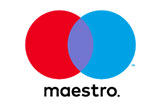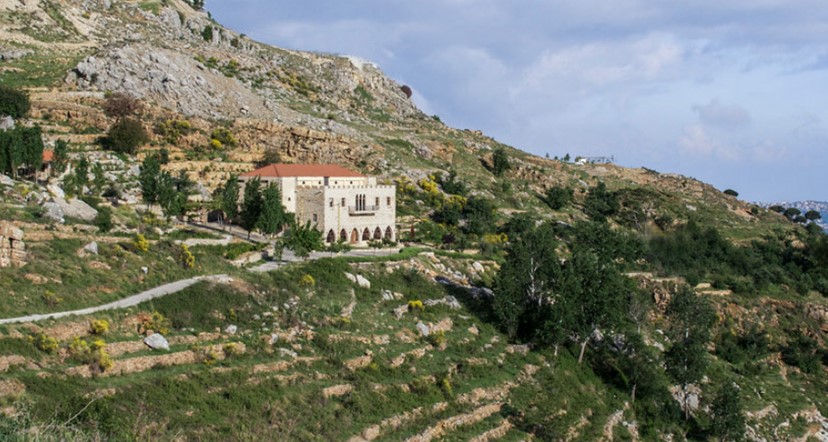
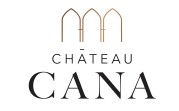
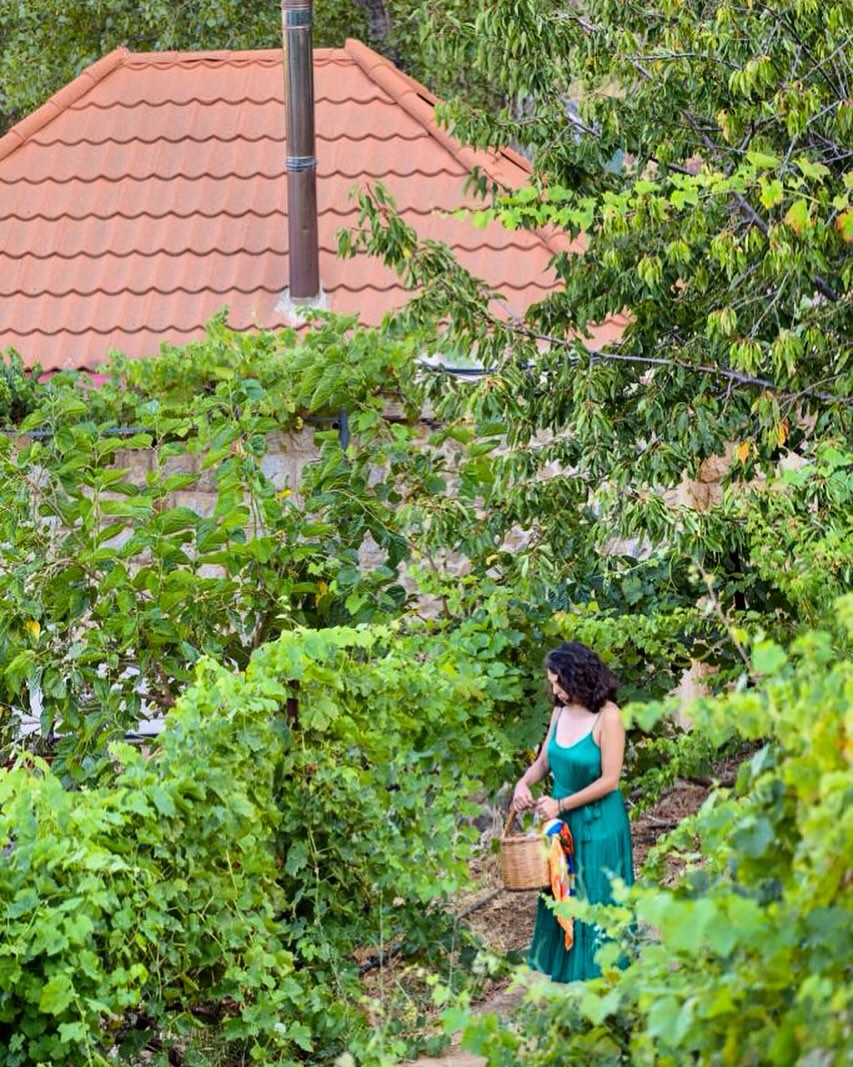
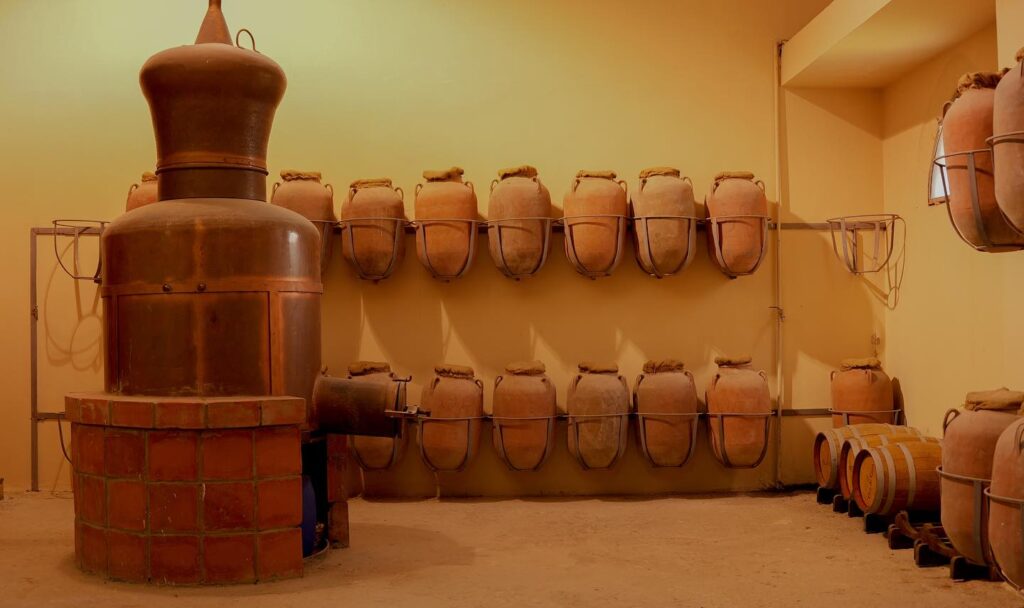
Château Cana
Château Cana benefits from an exceptional location in the heart of the serene and peaceful pine valley of Ras el Harf. Celebrated by the French poet Alphonse de Lamartine in "Voyage en Orient," the valley later took his name. The vineyard lies 900 meters above sea level, spans ancient terraced slopes, and enjoys 300 days of sunshine per year.
VINEYARD
The vineyard is planted with approximately 60% Cabernet Sauvignon, 30% Sabbaghieh, and 10% Chardonnay. Cabernet Sauvignon is the star grape of the vineyard, thriving in the poor gravel soil. These conditions impart concentration, color, and tannin structure to the wine. Sabbaghieh, a local grape variety, is characterized by aromas of red fruits such as cherries, raspberries, and strawberries; it has the potential to develop vegetal and ‘farmyard’ aromas that can enhance the complexity of the wine. Chardonnay plays a balancing role, tempering the power of the dominant Cabernet Sauvignon.
CLIMATE
The climate in the valley is highly variable, which makes each harvest unique. Winters are mild and wet with occasional cold spells; spring is warm but often foggy; summer is hot, with humidity until mid-July and then drier conditions. Day and night temperatures are generally more contrasting in August, which speeds up grape ripening while preserving their aromatic freshness. The beginning of autumn is usually sunny with cooler temperatures.
GEOLOGY
Most of Château Cana's vines are planted on gravelly hilltops. The fortunate combination of surface gravel layers and underlying clay results in high-quality vines, particularly in the development of a deep root system. Additionally, the presence of lower clay layers that retain water in the subsoil ultimately provides the vines with enough water to survive the driest periods of the year.
THE WINE
Throughout the winemaking process, they use a natural approach. The grapes are harvested by hand, and fermentation occurs naturally with minimal intervention.
The Phoenicians were known for their maritime trading culture across the Mediterranean. They were also the first to establish the wine trade!
The "Cabires," also known as "The Mighty Ones," were Phoenician deities known as the protectors of the seas.
Inspired by their remarkable history dating back to 3500 BC, they chose to name Château Cana's discovery area “Les Cabires.”




